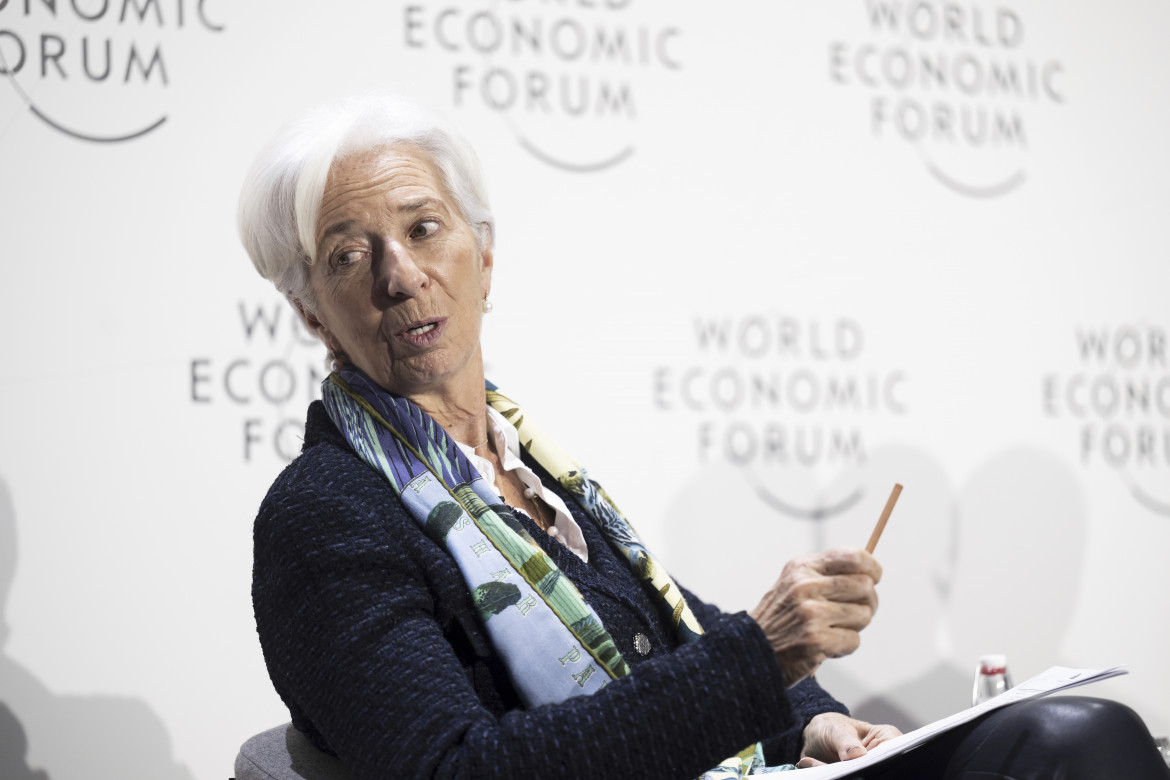Commentary
Lagarde at Davos defines China’s deadly capitalist calculus
At the World Economic Forum, the president of the European Central Bank Christine Lagarde revealed the reality of capitalism, the one we can all see but don’t talk about.

People sometimes project onto Davos their own nightmares and fantasies about our malfunctioning world. Some see the World Economic Forum held annually in the Swiss town as a projection of a Leviathan ruling the land and sea or a committee of stakeholders of the Empire. There are those who have likened it to that bar in Star Wars described by Obi-Wan Kenobi as “a wretched hive of scum and villainy.” Nowadays it is frequented by puppeteers and philanthropists chatting about historic income inequality or the climate crisis, ignoring the fact that they are part of the problem.
But then there’s Christine Lagarde, the president of the European Central Bank (ECB), who ended up speaking the unvarnished truth about capitalism, Covid and inflation. It was a moment when the mask came off, both tragic and revealing.
“China is waking up again,” Lagarde said on a panel including International Monetary Fund Director Kristalina Georgieva. “It is now forecasting 5.5 percent growth, and we should welcome the auspices of those commitments. And it is the case that the Covid policy, or the change of this Covid policy, will kill a lot of people, but will also revive the economy, and that’s clearly a determined choice that was made by the Chinese authorities.” The impact will be “positive for China, positive for the rest of the world, but it will have inflationary pressures on many of us.”
What the ECB president said, in simple terms, was that there are some lives that are protected and others that can be sacrificed to restore value to the economy. Known for her tendency to pick inappropriate times for cutting verdicts, such as her description of Mario Draghi, we can at least say that the French economist and former head of the IMF should one day be given a prize for the best definition of “thanato-capitalism.” This is a form of capitalism in which trade, industry and finance are founded on, linked to, and directly or indirectly dependent on death and the profits derived from it.
We can read recent history in this light: in 2020 there was the Covid pandemic, produced by the interspecies zoonotic jumps of a coronavirus whose spread was facilitated by intensive exploitation of forests and mines in China and then by interconnected value chains. Chain-reaction lockdowns blocked global networks, burned immense public resources to preserve businesses, impoverished great masses of people and disrupted production.
Then came another crisis, that of record inflation, which compounded the Covid crisis. And now, in China, the sacrifice of hundreds of thousands of people who will die from the consequences of Covid should serve to bring the economy back up to speed. One could see the mass deaths at other latitudes in a similar light as well. It is a truth that remains invisible, ignored by everyone except the relatives of the victims. Plenty of philosophical theories and “libertarian” political impulses have arisen denouncing the denial of personal freedoms caused by the restrictions, but few have dwelt on the contradiction that Lagarde summed up with such casual ruthlessness.
Lagarde also pointed to the other contradictions of the recovery. As long as a new inflationary wave doesn’t come from China, the ECB (like the Fed in the U.S. in its own context) will continue to raise interest rates by perhaps half a point in order to lower inflation to 2 percent, a goal that is in sight for 2025; she called “stay the course” her “mantra.” This will increase the cost of government debt that will not be covered by the reduced expansionary monetary policies; it will reinforce the impulse to contain wages, and it will increase unemployment. Creating social crisis to return to growth: that is the price to pay for “recovery,” according to Fed Governor Jerome Powell.
She also issued a call to governments, such as Meloni’s in Italy, to tighten public spending in a renewed policy of austerity after the windfall aid from governments during the acute phase of the pandemic. She called for limiting aid to only the poorer sectors, the opposite of what Meloni is doing by cutting the “citizenship income.” But it remains to be seen whether budget cuts won’t also harm this supposed focus on the poor, as it did in the 2007-2015 crisis, for example. Or whether the much-touted NRRP investments will actually support the anemic growth. In any case, the ECB could take “all the measures that it has to take” to raise rates if inflation is not brought under control by governments as well – possibly causing a worsening of the recession.
Originally published at https://ilmanifesto.it/per-lagarde-aprire-la-cina-uccide-ma-rilancia-la-crescita on 2023-01-21
